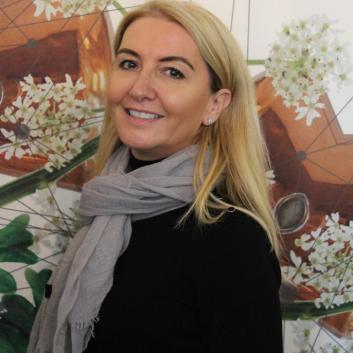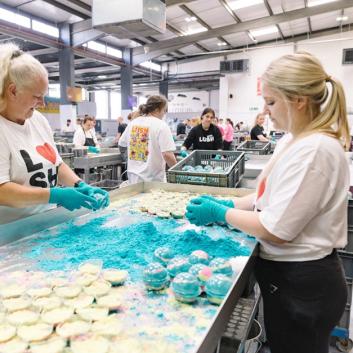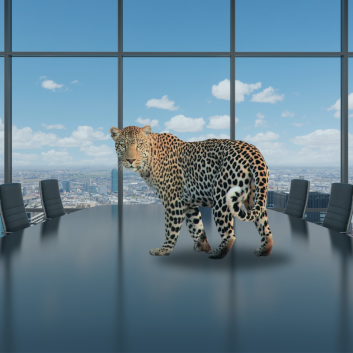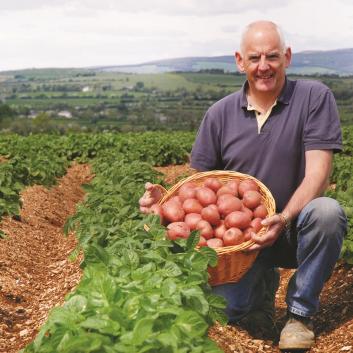Women on a mission: Challenging business as usual
Despite working in different fields, such as industry, academia, communication, three women have one thing in common. They are passionately working to create a new norm where embedding social, environmental values into business strategy will be part of business as usual. How do these strong female leaders are making change happen and influencing others too?
Sustainability in business
"I would probably describe myself as a corporate activist for sustainability, but I didn’t initially come down this route. I went to work in the traditional environmental sector, but once I became more aware of the climate challenge – both the scale and potential impact – and the role of business, I was hooked.
Since having children, I have become even more involved, worrying about their future, and selfishly about my own, as climate change is going to have an impact in my lifetime.
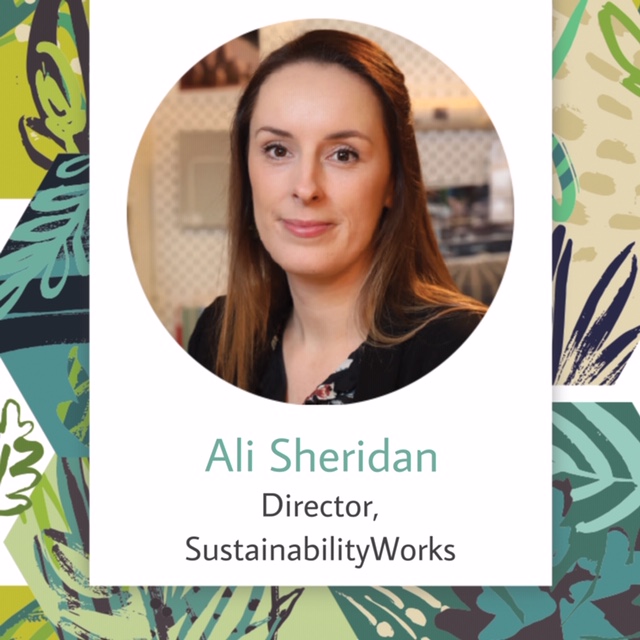
I have worked in corporate sustainability for over a decade. I spent several years as a sustainability manager for IKEA Ireland, which was an excellent opportunity to see and shape trends in this space.
I recently joined the team at SustainabilityWorks, a consultancy on a mission to help Ireland accelerate the transition to a sustainable economy. We are a unique team comprised of experts in sustainability strategy, finance, policy, innovation and communications. I really enjoy having the opportunity to support Irish businesses to make the necessary shift towards more sustain able business models.

It is exciting to be part of this change, I love the pace of innovation in this space. For me it’s all about looking beyond traditional business models based purely on profit and figuring out how a business can deliver more.
In my opinion this is not a question of if, it’s when! It’s not going to be a trend much longer, it is just going to be business as usual.
We have a lot to do in terms of educating leaders that this is not about sacrificing profit, and the importance of thinking long term rather than short term. To integrate sustainability into the core business, it has to start at the top with leadership commitment and creating an environment for employees where they can become part of the change. It has never made more sense for a business to act on sustainability.
All the questions we had earlier, like ‘is this the right time’ or ‘do people care’, are all answered.
There are two common misbeliefs regarding sustainability in business:
1. That you are conflicting with commerciality once you start talking about sustainability.
2. Thinking that sustainability can be a side project.
The biggest mistake to be made right now is to underestimate how much people care about this issue, how much they are looking for businesses to provide solutions, and how much longer are they willing to wait to see the changes that they demand.
There is a whole new generation of conscious consumers who are asking for this; employees are choosing workplaces that align with their values; investors are looking for additional information on environmental and social factors. All stakeholders are pushing businesses to drive climate action.
The quicker a business moves, the better they can leverage the benefits and opportunities of climate action. We have to understand that we have limited time left to make these changes, so a sense of urgency needs to come into the mix. We can all do something about it, and we need everyone to get involved, it is not just for people with sustainability in their title.
Embracing social innovation in education
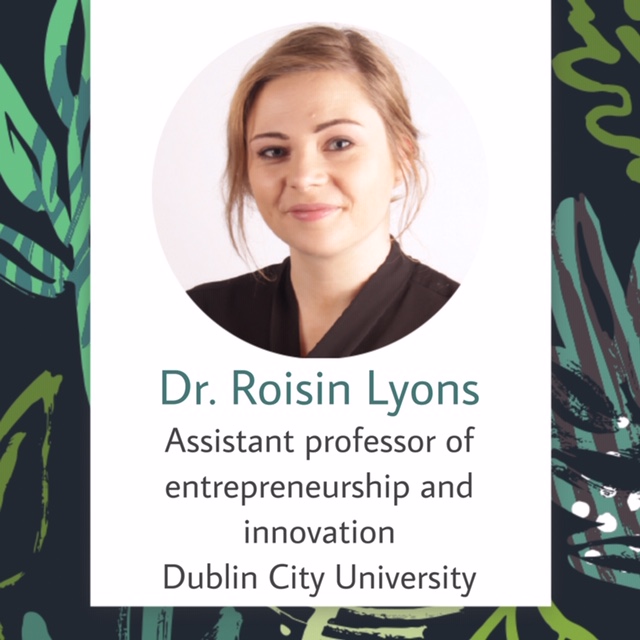
"The traditional business model is to look for solutions that would be commercially viable to find a feasible gap in the market. However, if you are starting with a social, environmental challenge first and then finding out how to make the solution financially sustainable, you are in essence, creating a social enterprise. This can be more complex in terms of achieving goals on multiple levels (social, ethical, environmental), yet these ventures must also remain competitive against other more traditional business offers that are available on the market
It is vital that individual’s do not get caught up with praise when embarking on a social enterprise. I often notice that when people are presenting their idea about a social enterprise or purpose-driven business that they get a lot of acknowledgement. Of course, this can be justified as they are attempting to do something positive for a community.
Yet social entrepreneurs must continue with more probing questions like ‘That’s great that you liked our idea, but would you buy the product? Would you pay for it? Why? Why not?’
Especially in the beginning, when they are not actually on the market yet, the overwhelming feeling of being praised for their mission, might cloud their judgement and leave important business questions out of the equation.
There is a difference between “a customer should buy” and “a customer will buy”.
When I work with students who are passionate and have a clear vision with their socially driven idea for an enterprise, it is imperative that they base their project in reality. A robust feasibility study based on sound evidence and research helps to pre-empt any issues, test all assumptions and remove any entrepreneurial bias.
Sometimes I will advise them to allow an independent researcher lead a focus group or interview, someone who is not emotionally invested in the results. Being too close to it can affect how you will question and react, and will influence those who are providing their insights to you.
Distancing yourself from your idea can lead to crucial discoveries to address difficulties, which better reflects on reality. As a result, you have a better chance to achieve your goals.
Usually, value-driven companies start from a personal trigger moment and want to find a better way to deal with a particular challenge. To stimulate social enterprise within education, we allow students to explore social problems in a safe environment and provide experiences that would enable them to connect with these social groups or challenges.
Empathy is fundamental to build a solution that solves the real problem rather than just scratching the surface or dealing with misleading perceptions.
I am an ENACTUS faculty advisor, which is a global movement to inspire social innovation through entrepreneurial actions in third-level education. This programme helps to create a learning experience that inspires this empathy, critical thinking, and innovation irrespective of a student’s degree choices or intending career path.

I am always amazed by the ideas and solutions presented at the end of the programme. Homelessness the climate, mental health, the refugee crisis – these students put their hearts into creating robust, profit-making and viable social enterprise concepts that will help. Some even pursue their ideas and create real ventures.
I feel fortunate to work with them and see the shift in their thinking that will shape future workplaces and the world of business, including its ethos.
Marketing as a force for good
"Marketing is changing because the world is changing. The younger generation just thinks about brands and consumes in a different way which is challenging businesses to change too. Accessible and affordable sustainability products are becoming more of a trend on the market, and people are actively seeking out these alternative options as opposed to traditional offers.
One of the biggest barriers in the making that mainstream is that they are just not accessible to everybody.

To achieve a just transition to a more circular and net-zero carbon economy, we need to think about solutions that are available to all.
New businesses are more likely to put purpose in their core right from the ‘get-go’ phase and build a connection with their consumers from there. For existing businesses, especially for more prominent brands, it’s a challenge to find an authentic voice. Even when young people start seeing businesses shift, they don’t always trust it right away.
Greenwashing or the perception of greenwashing is something that these companies have to overcome at the first place.
It’s not just about changing for the better and doing good – being able to communicate this effectively to people is crucial.
Communication enables people to make a purchase decision based on values or purpose – and also puts pressure on competitors to do the right thing too.
It is evident by now that the days of 100 page CSR (Corporate Social Responsibility) reports are gone. You need to make sure that your stakeholders are engaging with the content that you are producing. It has to be attractive – even fun – and easy to digest. The element of fun in social mission might be surprising, but it is a great way to get people involved.
Brand activism is something that we do a lot to raise awareness and connect global issues with a brand. We did a campaign for the Ben & Jerry’s ice cream brand where we created ice sculptures of politicians at public spaces, using a motto ‘if it’s melted it’s ruined’. The link between climate justice and the brand manifested in a way that made it easy to get the attention of their audience.
For new businesses, once the purpose is at the core, it will guide everything they do. A strong purpose will fuel a more impactful, trustworthy and authentic communication.
Personally, I think that this mindset could be the next norm in creating better businesses: take a step back, look around to identify social, environmental issues and find a way to tackle those by creating a financially viable organisation.
When we started to work with Tony’s Chocolonely, it already had a powerful social mission to make a chocolate that is 100% slave-free. The brand was built by journalists who saw the dark side of the chocolate supply chain – including child labour and modern slavery. They decided to start an experiment to see if they could make a slave-free chocolate bar, which led to start a business and build a brand to raise awareness.
In this case, it was creating profit from the purpose and not the other way round, which I think is inspirational for start-ups.
Marketing, for me, is about finding out why we do certain things! I studied philosophy in college, and it fascinates me how much it matters to raise the question of ‘why’ before we do anything. It inspires me to look at the world differently.
I thought a lot about walking away from the corporate world, but then I realised that probably I could have a more significant impact from the inside by working with businesses.
I believe that a brighter future lays before us if we are willing to question certain things and go through an ideology shift. We need to change people, culture, and why we create a business in the first place with the focus on what its function in society. I definitely suffer from eco-anxiety about what’s happening in the world with climate change, loss of habitats and the uncertainty of the next few decades.
With my work at the THINKHOUSE youth marketing agency, I feel like I’m doing something about it and face these challenges front on. I don’t want to sleepwalk through this crisis that we are in and ignore it. I want to have an impact on what is happening and be able to look back on my life and see that I did what I could.










